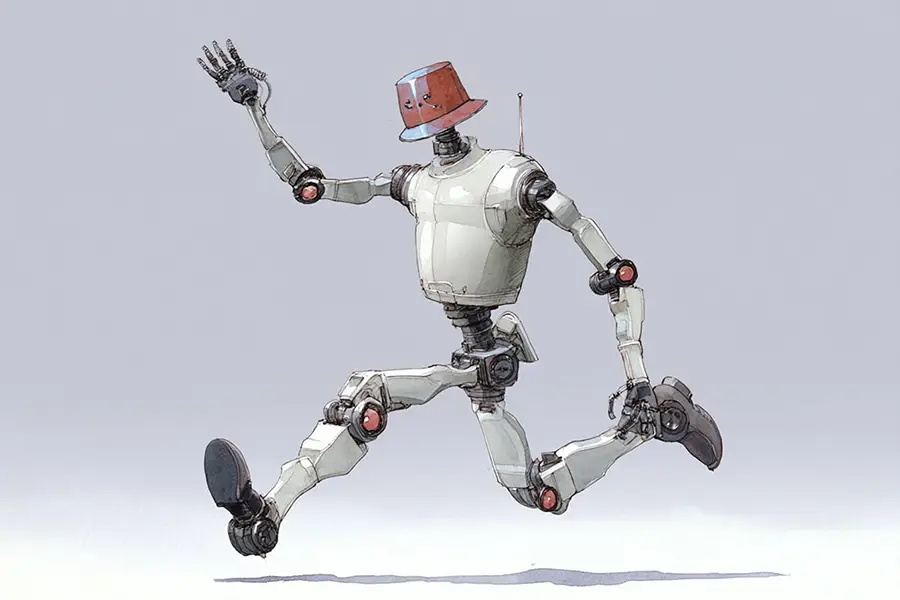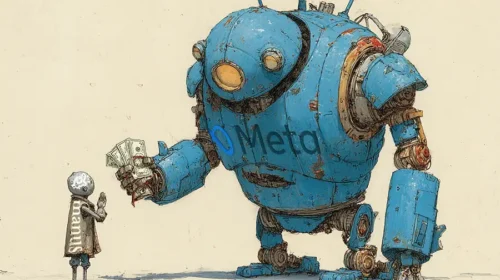Dancing robots and K-pop diplomacy: China’s economic and social gambits

“The way to keep people docile is to give them ‘bread and circuses.’”

By Doug Young & Rene Vanguestaine
Two recent developments in China, one concerning high-tech robots and the other popular culture, offer a revealing glimpse into the nation’s current of economic ambition and social maneuvering. The first is the planned IPO of Unitree, a robotics firm that shot to fame with its dancing humanoids. The second is the quiet but unmistakable end of an unofficial, nearly decade-long ban on South Korean cultural imports.
From our perspective, the story of Unitree is a masterclass in market timing. The company became a household name in China after a troupe of its humanoid robots performed a synchronized dance at the widely watched Lunar New Year’s Eve gala. Capitalizing on this buzz, Unitree announced it would pursue an IPO by the end of the year. We believe the listing will most likely happen in Hong Kong or on China’s A-share markets in Shanghai or Shenzhen, as a U.S. listing would face hurdles given the potential for military applications of its technology. The company’s primary products are actually robotic dogs, not the humanoid dancers that captured public attention. But the strategy is clear: leverage a visually stunning and successful showcase to attract not just sophisticated funds but also retail investors.
But one may ask whether the sector is truly ready for prime time. Is there even a fundamental need for robots shaped like humans? The case for industrial robots is already well-established: they are a proven solution to the challenges of shrinking and aging populations.
And the idea of a robot assistant for the elderly is exciting and has a sci-fi appeal. Elon Musk is actually pretty big on that as well, lending the concept both credibility and hype. But we are still in the very early stages. A useful comparison is autonomous driving, which has been promised for a decade but has yet to be realized at scale. Humanoid robots can perform well in highly controlled environments, but the real world is messy and unpredictable.
The excitement also fuels a powerful investment narrative. We believe a significant part of the retail investor enthusiasm for futuristic technologies like robotics, crypto and blockchain stems from a kind of historical anxiety. The investment story here is fueled by a potent historical parallel. There is a palpable fear among many investors of “missing the boat” on the next great wave of wealth creation — a fate they associate with forebears who did not capitalize on the Industrial Revolution. This motivates a resolve to get in on the ground floor of today’s technological boom. Whether these bets on the future will pay off is another story entirely.
After a decade, a geopolitical freeze on K-pop thaws
Turning to our second topic, China appears to be quietly lifting its long-standing, unofficial ban on K-pop and other South Korean cultural products. This freeze dates back nearly a decade to a geopolitical dispute over South Korea’s installation of the U.S.-made THAAD anti-missile system. Beijing protested that the system’s powerful radar could be used to spy on China, and it responded by informally sanctioning Korean businesses and halting all imports of Korean pop culture.
Now, with K-pop concerts being held in Macao and Tencent’s music arm making related investments, it seems the ban is over. The timing is intriguing. One factor is that Chinese culture, and its pop culture in particular, is obviously a lot stronger now. A decade ago, the Korean Wave was a dominant force; today, China has a vibrant domestic pop culture scene that can compete.
However, we believe there are deeper forces at play. The initial ban may have been about more than just geopolitics. It coincided with a broader effort from Beijing to limit Western and other foreign cultural influences and steer young people back toward traditional Chinese values. In that context, maybe the anti-missile system was just an excuse at the time that was convenient.
So why lift the ban now? The answer may lie in the Roman poet Juvenal’s observation that the way for emperors to keep people docile is to give them “bread and circuses.” Chinese youth are in a funk. Youth unemployment is alarmingly high, and there is a widespread sense of malaise and lack of motivation regarding work, family and the future. K-pop was, and remains, incredibly popular with this demographic. We think this move might be a calculated effort to give young people something to be excited about.
For foreign companies and investors, the entire episode is a lesson in the unique risks of the Chinese market. The ban was never officially announced, yet its effects were sudden and severe. This kind of opaque, politically driven action is not uncommon. Every time Beijing is displeased with a country, it has shown a willingness to respond with economic pressure of varying intensity.
This leaves businesses in a precarious position. The geopolitical landscape is in constant flux, and what is considered a safe investment today could become a target tomorrow. There is no clear way to determine which countries or companies will remain in Beijing’s good graces. For those operating in China, this serves as a stark reminder of the inherent political risks. The only foolproof method of avoiding this kind of hazard is, of course, not to be in the market at all. For everyone else, it’s a murky and unpredictable variable that must be factored into any strategic calculation.
Edited by Brent Li
About China Inc
China Inc by Bamboo Works discusses the latest developments on Chinese companies listed in Hong Kong and the United States to drive informed decision-making for investors and others interested in this dynamic group of companies.
Subscribe to China Inc on your favorite app:







